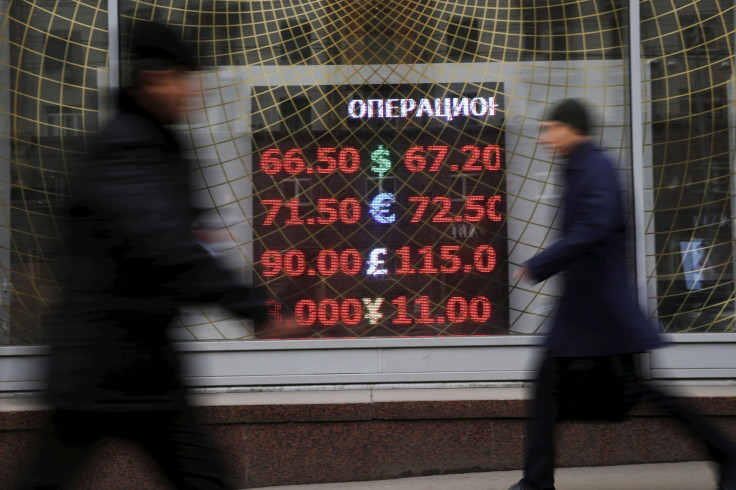Russia Declares Its Recession Has Ended Despite Continuing Low Oil Prices And Sanctions

Despite continuing low global oil prices and Western economic sanctions, Russia’s recession has ended, the country’s economic minister said Monday. The announcement implied third-quarter growth in Russia, but Economic Minister Alexei Ulyukaev provided no figures to support his statement, Agence France-Presse reported.
“According to formal indicators the recession in the Russian economy has finished,” Ulyukaev said.
Russia’s economy has been battered since harsh economic sanctions were applied by the U.S. and European Union over the annexation of Crimea from Ukraine in March 2014. Low global oil prices down from their high of over $100 a barrel over a year ago have also hit Russia’s economy hard.
Ulyukaev said Russia could experience as much as a 3.9 percent economic decline in 2015. The World Bank’s low-range forecast for 2015 predicts a 4.3 percent economic contraction for Russia with a continued contraction in 2016 at 2.8 percent. The World Bank estimates the country’s gross domestic product will stop falling in 2017. Even the World Bank’s revised baseline forecast for 2016 shows a 0.6 percent decrease with an economic recovery not taking place until 2017.
“We see that the low point was reached in June, and from July, if we are talking about month-on-month dynamics taking seasonality into account, we see a small positive rise -- 0.1 percent in August from July, 0.3 percent in September and 0.1 percent in October,” Ulyukaev said describing the country’s GDP, Reuters reported.
Russia’s GDP fell by 3.6 percent in October, an improvement from 3.8 percent in September, AFP reported. The country’s poverty rate has climbed and now numbers 21.7 million people.
Ulyukaev’s statement comes as other experts and officials make critical evaluations of the Russian government’s economic policies.
"We have for the first time since early 2000 seen the decline in real incomes,” said former Finance Minister Alexei Kudrin Saturday, according to Russia’s state-run Tass news agency. “In my opinion, government measures to support the economy of the population are not enough.”
Two consecutive quarters of negative growth led to the official recession label. Russia has experienced a recession since last year, with the country’s currency losing value and inflation rising.
© Copyright IBTimes 2025. All rights reserved.






















